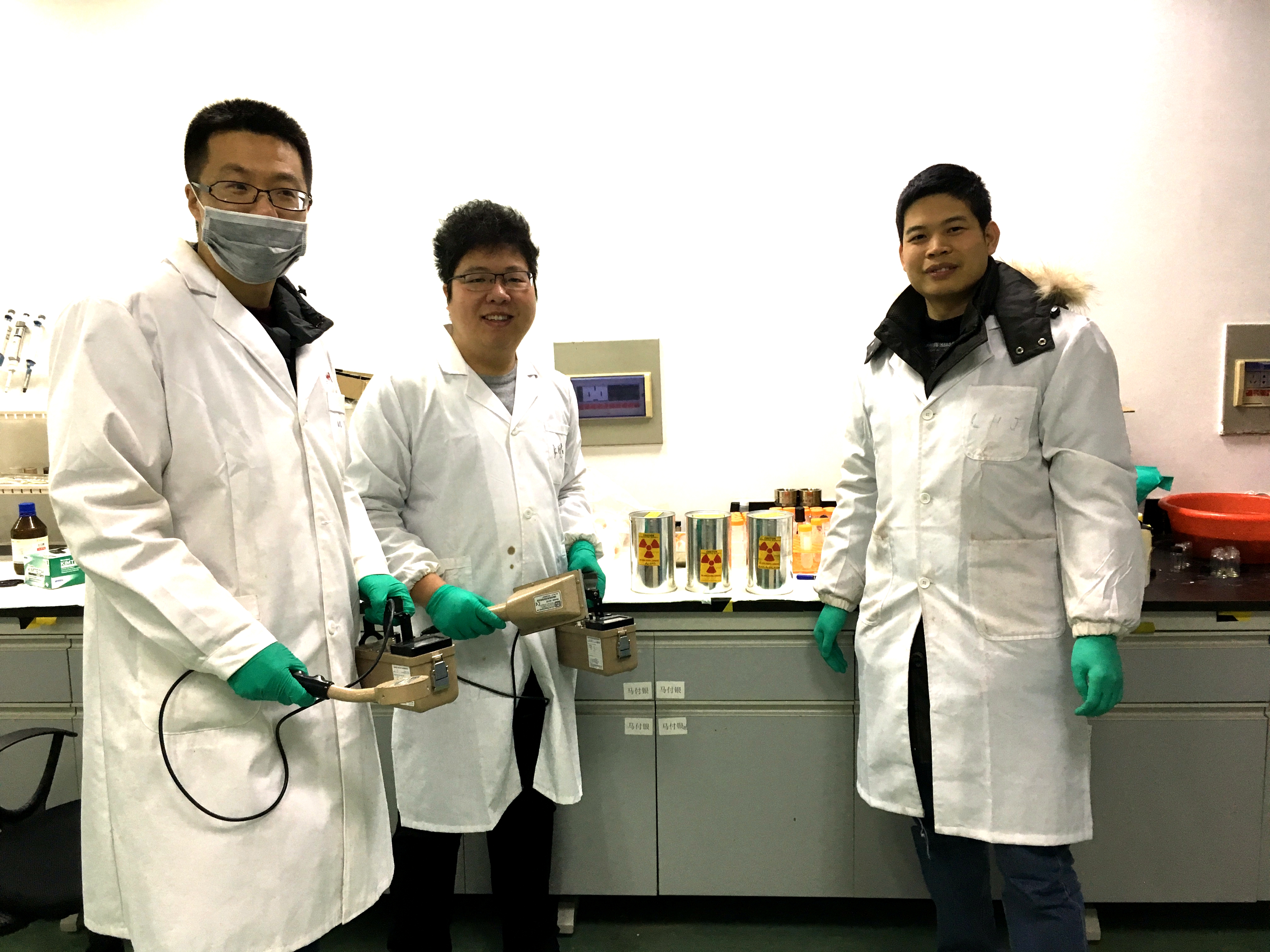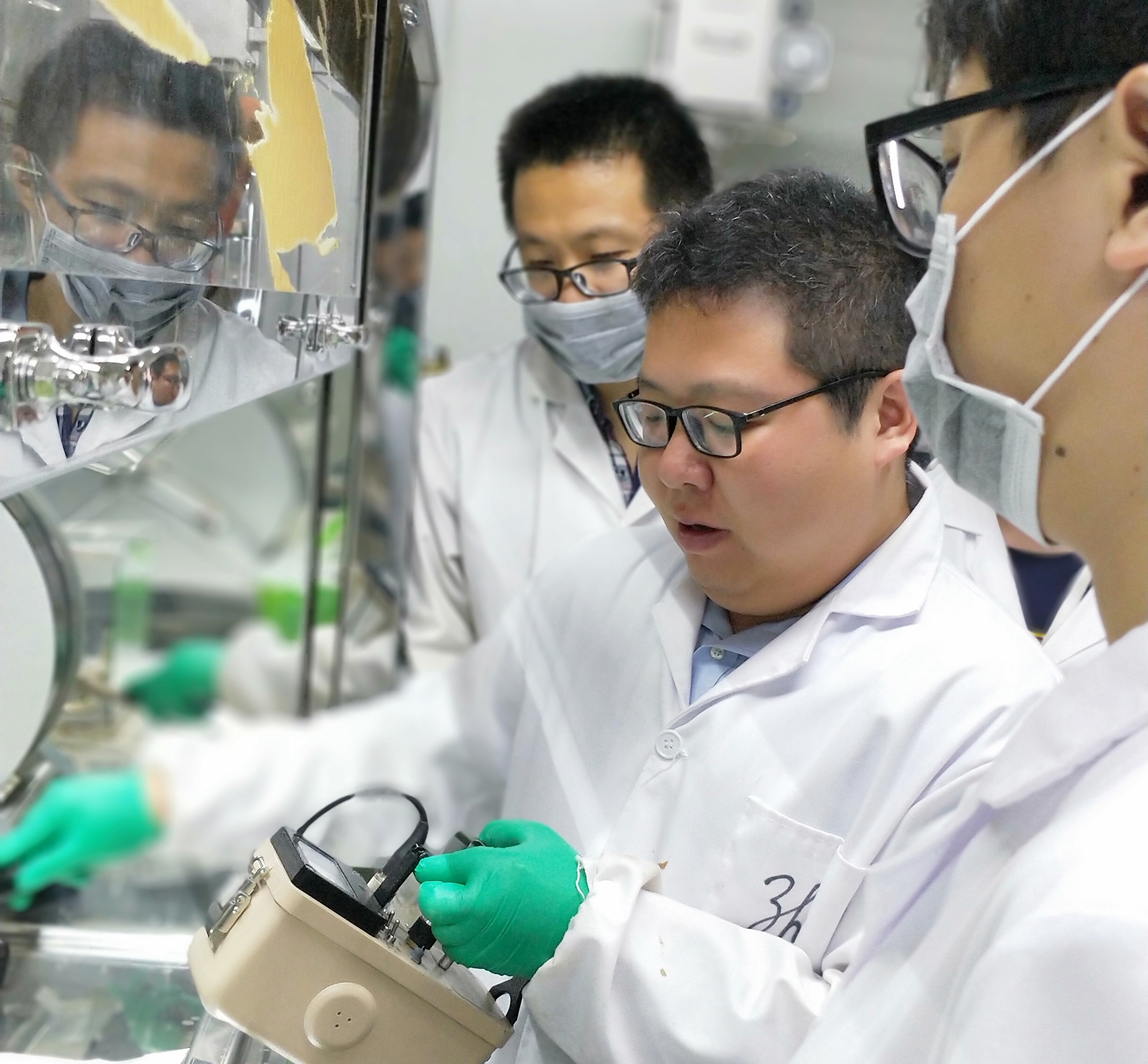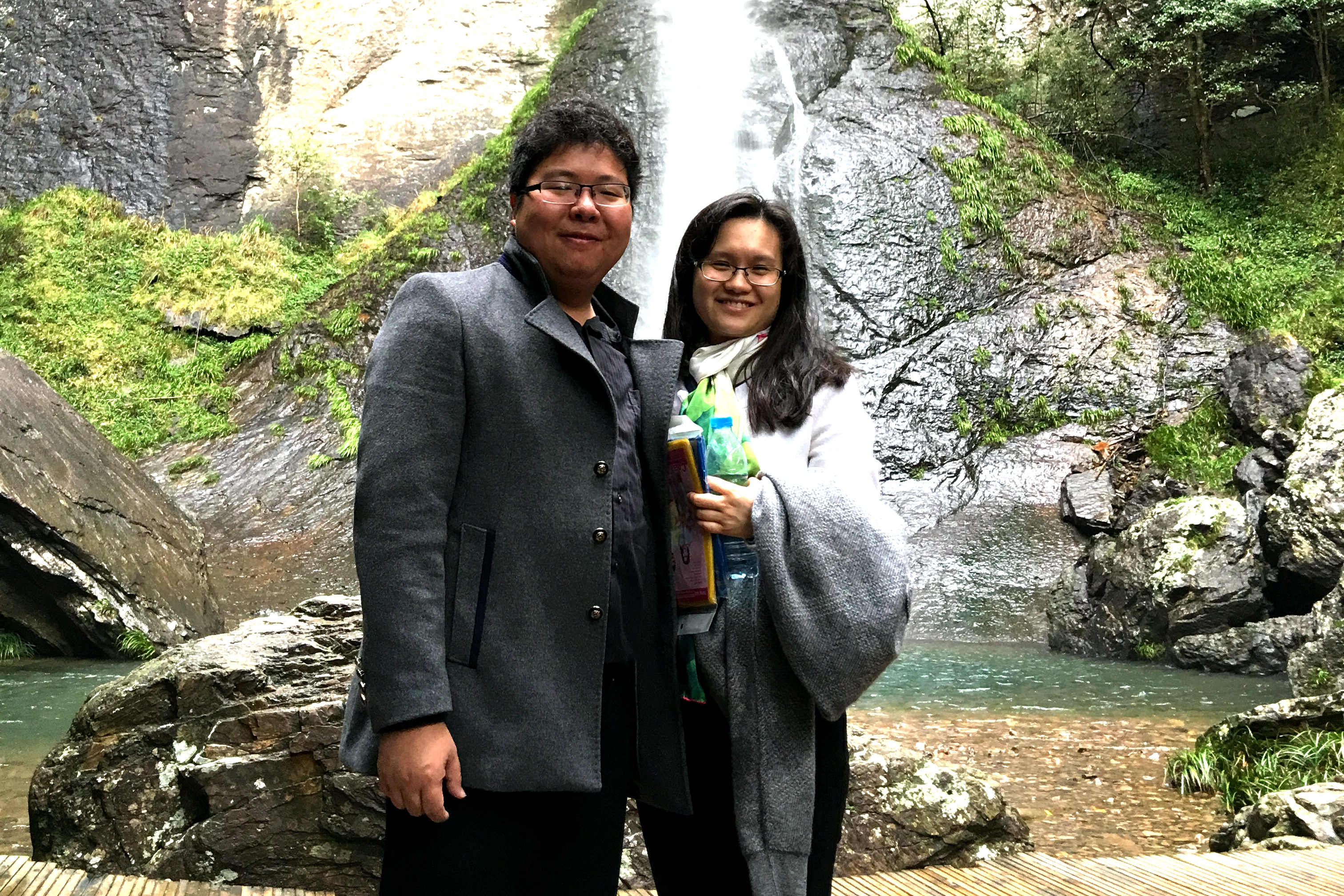
“From now to 2035 when China will basically realize socialist modernization, during these 17 years, you will be the most creative generation and have the biggest opportunity ever. You should bear our national responsibility and morality, make your personal dream merged into Chinese dream!” enthused Professor Shuao Wang, the representative of teachers from the Institute of Radiological and Interdisciplinary Science of Soochow University, at the Opening Ceremony of 2018.
Shuao Wang bears abundant titles and honors; he is Ph.D. supervisor, Distinguished Professor, the winner of Chinese Chemistry Society Youth Chemistry Award, and the winner of National Science Fund for Distinguished Scholars. The new star researcher with glories, though as young as 30 years old, has been leading his team in the exploration of the nuclear world. Just in one year of 2017, he and his team published 32 high-quality articles in the high-level journals of international environmental chemistry studies, including more than 10 papers published in the top journals such as Nature Communications, Journal of the American Chemical Society (JACS).
Ideals, tastes, and platforms
When we interviewed professor Wang, he was instructing the team to conduct the experiment in the Center of Nuclear Environmental Chemistry at Soochow University. Despite his baby face, he speaks in a serious and brisk manner. He pays much attention to developing students’ scientific taste, and is viewed as a scientific guide by his students. Concerned with every student’s research, he goes to their labs and helps handle the specific problems with patience as long as he stays on campus.
“Grade-A student” as he is, Professor Wang impresses us by his amiability and modesty. “Many people think I am a genius since I graduated from School of the Gifted Young, USTC (University of Science and Technology of China), but I was not good at all subjects as a student. It is the love for physics and chemistry that leads me to learn Materials Chemistry, an interdisciplinary subject.” says Professor Wang.
In the year of 2003, professor Wang was admitted by USTC, which is well-known as “the cradle of technology talent”. At the opening ceremony, Qingshi Zhu, then President and Academician of the Chinese Academy of Science, delivered a speech which kindled Wang’s dream of scientific research. “The opportunity is an overriding but uncertain factor of one’s success. A wise man is good at seizing the opportunity and making best use of it.” said the President. Encouraged greatly, Mr Wang therefore had a dream of rejuvenating the country by science and technology.

The study in USTC had laid the foundation for his scientific career, and later overseas study continued to broaden his horizon. After graduating from USTC, he furthered his research in Materials Science of Actinides- an Energy Frontier Research Center, University of Notre Dame, Lawrence Berkeley National Laboratory, LBNL, College of Chemistry, UC Berkeley. Noticing that overseas scientific research was flourishing, Wang, with patriotism, was eager to return to his motherland where he could make contribution by his knowledge. Despite some attractive opportunities offered by other domestic higher education institutions and scientific institutions, Wang finally chose School of Radiation Medicine and Protection, Soochow University, the equivalent of China’s “Huangpu Military Academy“ in radiation medicine.
“At first, I actually considered other places, but occasionally, Chai Zhifang, Academician of the Chinese Academy of Science, recommended Soochow University which boasts the only national key subject in radiation medicine. And at that time, our country boosted the development of nuclear power, so there was no doubt that it was the best place to conduct scientific research.” said Wang. In August, 2013, Professor Wang joined Soochow University.
Aspiration and Persistence
In Soochow University, Professor Wang decided to conduct cutting-edge research on four major projects, including:(a) new waste forms of actinides and the fission products, (b) new strategies on separation and remediation of radioactive environmental pollutants, (c) environmental transportation and fate predicting of radionuclides, and (d) interaction between radionuclides and biomolecules including sequestration reagents. All these research projects play an important role in promoting sustainable development of nuclear energy and nuclear safety. Yet the research is a closed research system, consisting front control in radioactive contamination of nuclear energy, prevention radionuclides contamination from entering into human body, and excretion of radioactive contamination.

Professor Wang and his team exerted their efforts and contributed their best to the scientific research. “Many toxic radionuclides in nuclear waste were used in our research. It ensured the application of our research, not only theoretically, but also practically,” said Wang. Focusing on radiation protection, after working around the clock in the laboratory, Wang and his team eventually worked out a solution to disposal of nuclear waste by using a mature technology of radionuclide procedure. They also solved the bottleneck problem of development of drugs in advancing excretion by transforming the drug ligand to effectively recognize and combine the radionuclides, so that the radionuclides changed into the water-soluble compound and can be excreted easily.
In March, 2017, Professor Wang’s team made a series of progresses in environmental radiochemistry. They firstly synthesized and analyzed the crystal structure of Zirconium phosphate based metal-organic frameworks, which maintains stable in strong acid solution. Given its stability, they applied the structure in high acidity conditions to adsorb uranyl ions, providing a new way of nuclear separation in spent fuel reprocessing and prevention and control of radionuclide pollution. The related research results are published in Nature Communications.
Professor Wang is delighted that his scientific research has gone smoothly over the five years since he has worked at Soochow University. With the “export” of influential achievements one after another, his team has secured a place in the core field of the prevention and control of the International Environmental Chemistry.
When Shuao Wang was awarded 2016 Chinese Chemistry Society Youth Chemistry Award, the organizing committee commented that “he establishes a new generation of nuclear waste storage form and new material for nuclear emergency preparedness to meet the sustainable development and nuclear security. He also lays the foundation for designing the new way of spent fuel reprocessing, which will reduce the long-term toxicity of nuclear waste.”
“As a scientific researcher, my greatest wish is to defend our national nuclear security through significant scientific work.” said professor Wang. It is his patriotism that pushes him to reach new highs.
A wife and a friend with whom he shares the love of science
When it comes to Wang’s scientific research, Di Wujuan, his wife, has to be mentioned. Graduating from the same university and following the same tutor when studied aboard, the couple supported each other, mentally and scientifically, during their study of decoding coordination chemistry of lanthanide and actinides.
“His mind is active. He will start a discussion with me when some new points hit him when we are dining, even when it is late night.” From Di’s perspective, her husband Shuao Wang is a man filled with enthusiasm for science, which she said is also a great encouragement for her. “ We often discuss the scientific problems together. When we can’t persuade each other, we will let the results do the work.” joked Di Wujuan.

The commitments are also reflected in the way he cultivating students. Yumin Wang, an undergraduate of School of Radiation Medicine and Protection, expressed his gratitude for Professor Wang who helped a lot when he took part in the competition of “Challenge Cup”, a national contest. “ It is required to reply in English. I am poor in English, so it is quite a challenge for me. But Professor Wang helped me with writing, PowerPoint slides making and revised my English oral defense again and again. He gave my confidence and as a result, I won the first prize.” recalled Yumin Wang.
Wang holds that it is of same importance to cultivate students’ ability of independent thinking and communication. Lin Zhu, Professor Wang’s first Ph.D. student who will graduate this year, has been appointed as Distinguished Professor of Southwest University of Science and Technology, which breaks a rule for her major achievements in anion-exchange material. “He is strict with us, but rather than the scientific results, he thinks more highly of our ability of independently conducting scientific research.” commented Zhu.
During the interview, we are impressed by professor Wang’s persistence and great insight. He is confident that “ since the human has entered into a world where technological developments are so fast, we have more chances than ever to change our life by the advantage of technology. It is our glory, as well as our responsibility.”
